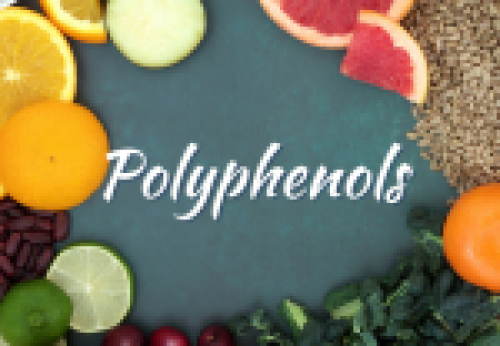Understanding Polyphenols: Nature’s Potent Health Allies

Polyphenols are a group of naturally occurring compounds found in plants, renowned for their diverse and potent health benefits. This article explores what polyphenols are, their health benefits in simple terms, their natural sources, the specific polyphenols supported by research, and why they hold significant importance in functional medicine.
What Are Polyphenols?
Polyphenols are micronutrients packed with antioxidants, derived from plant-based foods. Structurally, they are characterized by the presence of multiple phenol units. These compounds are critical for the plant’s defense mechanism against ultraviolet radiation and pathogens. When humans consume polyphenol-rich foods, they receive similar protective benefits.
Health Benefits
Polyphenols help the human body in numerous ways:
1. Antioxidant Properties: Polyphenols are powerful antioxidants, which means they help neutralize harmful free radicals in the body. Free radicals are unstable molecules that can cause cellular damage, leading to chronic diseases like cancer and heart disease. By combating these free radicals, polyphenols help maintain cellular health and prevent disease.
2. Anti-Inflammatory Effects: Chronic inflammation is a common underlying factor in many diseases, including arthritis, heart disease, and diabetes. Polyphenols have anti-inflammatory properties that help reduce inflammation and the associated risks of chronic conditions.
3. Heart Health: Polyphenols help improve heart health by promoting better blood flow and reducing the risk of blood clots. They also help in lowering blood pressure and cholesterol levels, which are major risk factors for cardiovascular diseases.
4. Gut Health: Polyphenols positively impact gut health by promoting the growth of beneficial bacteria in the intestines, something not seen in people with gut dysbiosis. A healthy gut microbiome is essential for proper digestion, immune function, and overall health.
5. Blood Sugar Regulation: Certain polyphenols can help in regulating blood sugar levels, making them beneficial for people with diabetes or those at risk of developing the disease. They enhance insulin sensitivity and slow down the absorption of sugars, thus preventing spikes in blood sugar levels.
Sources of Polyphenols
Polyphenols are found in a variety of foods and beverages. Some of the richest sources include:
- Fruit: Apples, berries (such as blueberries, strawberries, and raspberries), grapes, cherries, and citrus fruits are abundant in polyphenols.
- Vegetables: Onions, spinach, kale, and broccoli are notable sources.
- Beverages: Green tea, black tea, red wine, and coffee are rich in polyphenols.
- Nuts and Seeds: Walnuts, almonds, flaxseeds, and sesame seeds provide significant amounts of polyphenols.
- Herbs and Spices: Curcumin in turmeric, epigallocatechin gallate (EGCG) in green tea, and resveratrol in grapes and berries are some examples of polyphenols in herbs and spices.
Research-Supported Polyphenols
Several polyphenols have been extensively studied for their health benefits:
1. Resveratrol: Found in grapes, red wine, and certain berries, resveratrol is known for its anti-aging properties and cardiovascular benefits. Research indicates it can improve heart health by reducing blood pressure and preventing blood clots (Baur & Sinclair, 2006).
2. Curcumin: The active compound in turmeric, curcumin, has powerful anti-inflammatory and antioxidant effects. Studies have shown its potential in managing conditions like arthritis, metabolic syndrome, and anxiety (Gupta et al., 2013).
3. Epigallocatechin Gallate (EGCG): This catechin, predominantly found in green tea, is known for its cancer-fighting properties and ability to boost brain health. EGCG has been shown to reduce the growth of cancer cells and improve mental alertness (Yang et al., 2009).
4. Quercetin: Found in apples, onions, and tea, quercetin has antihistamine and anti-inflammatory properties. It is beneficial for heart health and may help reduce the symptoms of allergies (Li et al., 2016).
The Emphasis in Functional Medicine
Functional medicine practitioners emphasize polyphenols due to their holistic health benefits. Unlike conventional medicine, which often focuses on treating symptoms, functional medicine aims to address the root causes of diseases. Polyphenols, with their broad-spectrum benefits, align perfectly with this approach. Here’s why:
1. Disease Prevention: The antioxidant and anti-inflammatory properties of polyphenols make them effective in preventing a wide range of chronic diseases, thus promoting long-term health.
2. Holistic Health: Polyphenols support multiple bodily systems simultaneously. For instance, they benefit the cardiovascular system, enhance gut health, and improve cognitive functions, thus offering a comprehensive approach to health.
3. Natural Healing: Polyphenols are natural compounds, making them a safer alternative to synthetic drugs. They help in healing the body without the adverse side effects associated with many pharmaceuticals.
4. Personalized Nutrition: Functional medicine often involves personalized dietary plans. By recommending polyphenol-rich foods tailored to individual health needs, practitioners can provide targeted and effective health strategies.
Polyphenols are vital components of a healthy diet, offering extensive health benefits from disease prevention to enhancing overall well-being. Found abundantly in fruits, vegetables, nuts, seeds, and beverages, these compounds play a crucial role in promoting heart health, reducing inflammation, and supporting gut health, among other benefits. Research supports the efficacy of specific polyphenols like resveratrol, curcumin, EGCG, and quercetin, highlighting their importance in functional medicine. By incorporating polyphenol-rich foods into our diets, we can harness nature’s potent health allies to lead healthier, more balanced lives.
References

Further Reading on Supplements:
- How Magnesium Helps Your Body
- Ubiquinol / CoQ10 Benefits and Side Effects
- Health Benefits of Taurine
- Could Your Pain Be Caused by a Vitamin D Deficiency?
- B Vitamins: Essential Nutrients for Optimal Health
- Can B6 Cause Neuropathy?
- Sulforaphane, Mitochondria, and Oxidative Stress
- Functions of Lysine in the Body
- What are Adaptogens and How Do They Work?
- How Milk Thistle Supports Liver Health
- What Does L-Carnitine Do for the Body?
- Glutathione: The Master Antioxidant
- TUDCA for Liver and Gallbladder Health
- Health Benefits of Alpha Lipoic Acid (ALA)
- Benefits of Black Seed Oil
- Understanding Polyphenols: Nature’s Potent Health Allies



